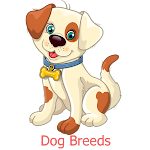
Introduction
When it comes to choosing a dog, there are countless breeds to consider. While many people may be familiar with popular sporting breeds such as Labrador Retrievers and German Shepherds, non-sporting breeds also make excellent pets. Non-sporting breeds were originally bred for tasks other than hunting or herding, and they come in a wide variety of shapes and sizes. In this article, we'll take a look at the 10 most popular non-sporting dog breeds, exploring their characteristics and suitability as pets.
Bulldog
The Bulldog is a medium-sized breed known for its muscular build and distinct wrinkled face. Despite their intimidating appearance, Bulldogs are actually quite gentle and affectionate. They are great companions for families and are known for their loyalty and love of children.
Poodle
The Poodle is a highly intelligent and elegant breed that comes in three different sizes – standard, miniature, and toy. Poodles are known for their curly, hypoallergenic coat and are often seen in dog shows performing elaborate grooming styles. They are quick learners and make wonderful family pets.
French Bulldog
The French Bulldog, or Frenchie, is a small, muscular breed with distinctive “bat ears.” They are known for their affectionate nature and are great companions for apartment dwellers due to their low exercise needs.
Boston Terrier
The Boston Terrier is a small, friendly breed with a tuxedo-like coat pattern. They are known for their lively and affectionate nature, making them excellent pets for families and single individuals alike.
Bichon Frise
The Bichon Frise is a small, fluffy breed known for its lively and cheerful disposition. They are relatively low-shedding, making them a great choice for allergy sufferers. Bichons are also known for their social nature and get along well with children and other pets.
Shiba Inu
The Shiba Inu is a small, agile breed that hails from Japan. They are known for their spirited personality and fox-like appearance. Shiba Inus are independent and loyal, making them great companions for active individuals and families.
Dalmatian
The Dalmatian is a medium to large-sized breed known for its distinctive black or liver spots on a white coat. They are highly energetic and require plenty of exercise and mental stimulation. Dalmatians are loyal and outgoing, making them great companions for active families.
Schipperke
The Schipperke is a small, agile breed with a mischievous nature. They are known for their black, foxy appearance and are highly intelligent and active. Schipperkes make excellent watchdogs and are well-suited to families with an active lifestyle.
Lhasa Apso
The Lhasa Apso is a small, confident breed with a long, luxurious coat. They were originally bred as watchdogs in Tibetan monasteries and are known for their independent nature. Lhasa Apsos are loyal and loving companions but can be wary of strangers.
Bulldog
The Bulldog is a medium-sized breed known for its muscular build and distinct wrinkled face. Despite their intimidating appearance, Bulldogs are actually quite gentle and affectionate. They are great companions for families and are known for their loyalty and love of children.
Conclusion
Non-sporting dog breeds come in all shapes and sizes, each with their own unique characteristics and personalities. Whether you're looking for a loyal family companion, a lively and energetic pet, or a low-shedding breed, there's a non-sporting dog that's perfect for you. Before bringing home a new furry friend, be sure to research the breed's needs and traits to ensure a good fit for your lifestyle and home.
FAQs
1. What are non-sporting dog breeds?
Non-sporting dog breeds are those that were originally bred for tasks other than hunting, herding, or other types of work. They come in a wide variety of shapes, sizes, and temperaments.
2. Are non-sporting dog breeds good for families?
Many non-sporting breeds make excellent family pets, but it's important to research the specific breed's traits and needs to ensure a good match for your family.
3. Do non-sporting dog breeds require a lot of exercise?
The exercise needs of non-sporting breeds vary widely, so it's important to research the specific breed you're interested in to ensure you can meet their activity requirements.
4. Are non-sporting dog breeds good for apartment living?
Some non-sporting breeds are well-suited to apartment living due to their lower exercise needs, minimal shedding, or smaller size. However, it's important to consider the specific breed's traits and needs before making a decision.
5. Do non-sporting dog breeds require a lot of grooming?
Grooming needs vary widely among non-sporting breeds, so it's important to research the specific breed's coat type and grooming requirements before bringing one home.


